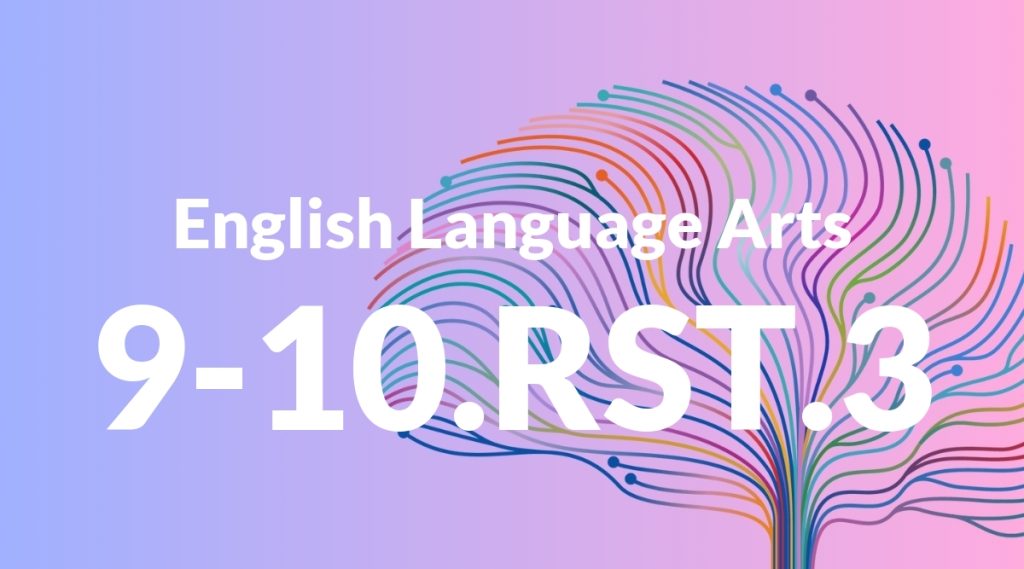Standard: 9-10.RST.3 – Follow precisely a complex multistep procedure when carrying out experiments, taking measurements, or performing technical tasks, attending to special cases or exceptions defined in the text.
Grade level: Grade 9-10
Subject: English Language Arts
Domain: Science & Technical Subjects
Teacher Overview
This standard emphasizes the importance of following complex multistep procedures accurately, especially in scientific and technical contexts. Mastery of this skill is crucial for success in higher-level science and technical subjects, as it ensures precision and reliability in experimental and technical work. Students should have a foundational understanding of basic experimental procedures, measurement techniques, and experience with following written instructions.
After mastering this standard, students will be able to design their own complex procedures, enhance their accuracy in technical tasks, and critically analyze procedural texts, preparing them for advanced scientific and technical work.
Common Misconception 1
A common misconception is that skipping steps in a procedure will not significantly affect the outcome. This is incorrect because each step is designed to ensure accuracy and reliability; skipping steps can lead to errors or failed experiments.
Intervention 1
To remediate this misconception, teachers can provide hands-on activities where students can see the direct consequences of skipping steps, thereby understanding the importance of each step in a procedure.
Common Misconception 2
Another common misconception is that students do not need to pay attention to special cases or exceptions mentioned in the text. This is incorrect because these exceptions often address critical variations that can affect the outcome.
Intervention 2
Teachers can use case studies or examples from real-world scenarios where ignoring exceptions led to significant problems, helping students understand the importance of these details.
Prerequisite Knowledge
Students should be familiar with basic experimental procedures, understand measurement techniques, and have experience following written instructions.
Subsequent Knowledge
Students will develop the ability to design their own complex procedures, improve accuracy in technical tasks, and critically analyze procedural texts.
Instructional Activities
- Step-by-step chemistry experiment
- Physics lab with precise measurements
- Biology experiment following a detailed protocol
- Engineering project with a series of technical tasks




